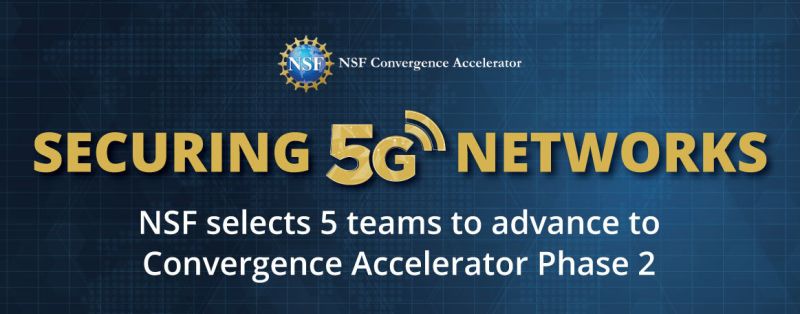
COSMOS will serve as the testbed for Phase 2 of the NSF Convergence Accelerator (Track G) Intelligent 5G Networks Designed and Integrated for Globalized Operations (INDIGO) project that is led by AT&T. The $5M project which is among 5 project that advanced to phase 2 seeks to address the United States Department of Defense and Public Safety goal of providing secure/adaptive/resilient connectivity for Warfighters and FirstResponders.
The 5G Convergence Accelerator is being supported by NSF in collaboration with the DoD, Office of the Under Secretary of Defense for Research and Engineering (OUSD) and the U.S. Army DEVCOM Army Research Laboratory.
Over the next two years the Phase 2 team will look to solve for the 5G-Operate-Through problem for military and civilian by creating a sustainable prototype using Human-Centered Artificial Intelligence (HCAI), ZeroTrust integration, and an Open Radio Access Network (O-RAN) architecture.
The goal is to securely operate through 5G NextG infrastructures in allied, hostile, and contested areas, and also to develop new infrastructures and partnerships for future secure wireless solutions in pace with emerging standards to fully realize the digital world that exists beyond the one in which we live today. INDIGO will set out to provide the timely transfer of information needed to connect every sensor and every actor despite the unique variations in network type, availability, traffic, and data across the lifecycle of a complex mission.
The collaborative project includes several other partners from industry and academia, including University of California, Riverside, Ericsson, Fujitsu Network Communications, highstreet technologies, Howard University, as well as COSMOS team members from New York University (Prof. Sundeep Rangan), Columbia University (Prof. Gil Zussman), Silicon Harlem (Clayton Banks), and Rutgers University (Ivan Seskar).
